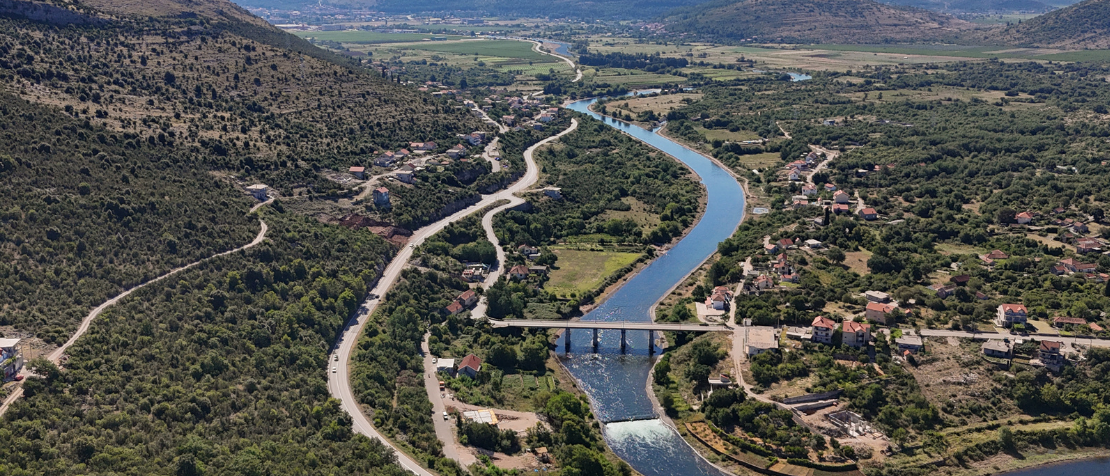Forest restoration restores ecosystems and strengthens rural communities in Bosnia and Herzegovina

©FAO/Imrana Kapetanovic
A project in Bosnia and Herzegovina, implemented by the Food and Agriculture Organization of the United Nations (FAO) in 2022, addressing land degradation neutrality (LDN) issues, is progressing to foster a coherent policy environment and track progress towards achieving the national LDN targets.
Historic and persistent unsustainable agricultural and forest practices such as poor land-use planning, urban encroachment, wildfires, insufficient forest management, over-exploitation of forest resources, deforestation and land erosion have resulted in land degradation, erosion, soil compaction, nutrient loss, and chemical imbalances, disrupting ecosystems and the water cycle in the country. Land abandonment in the last 25 years has adversely affected 1.2 million rural people.
Thus, Bosnia and Herzegovina, together with FAO, is taking measures to address these issues through improved management and conservation of forest resources, reforestation and rehabilitation of degraded forest lands.
As a party to the United Nations Convention to Combat Desertification (UNCCD) since 2002, Bosnia-Herzegovina is committed to achieving land degradation neutrality. UNCCD defines LDN on its website as “a state whereby the amount and quality of land resources necessary to support ecosystem functions and services to enhance food security remain stable, or increase, within specified temporal and spatial scales and ecosystems.”
Those LDN targets will enable a strong legacy for the future. “Investing in restoration offers significant returns—around 6 USD for every dollar spent—making a strong case for proactive measures, for local communities but for wider community and the state, as well,” stated Vlado Pijunovic, FAO National Project Coordinator.
The project’s theory of change combines three interconnected components: establishing a supportive environment for land degradation neutrality by removing barriers and building capacity at national and local levels, developing an efficient system for monitoring and reporting, and promoting adaptive management. Together, these components aim to create the conditions necessary to implement LDN targets and prevent land degradation in the long term.
Marijana Solomun Kapovic, Professor at the Forestry School in Banja Luka, supports the project as land degradation neutrality expert. She added that Bosnia and Herzegovina ranks above the European average for forest coverage but does not manage those forests resources sustainably.
“Understanding the soil properties, the local human activities and land management are crucial in deciding which type of trees and plants should be cultivated. This project uses soil analysis and a scientific approach to afforestation, ensuring that selected species and social benefits are to thrive and multiply with time. Our main problem in the country is degradation of the quality of our forests.”
It is critical to ensure local communities take ownership of sustainable forest conservation and rehabilitation. To identify appropriate community pilot areas for implementation, the project developed an interactive Decision Support System for exploring baseline data, visualising maps, performing analyses, and find critical hotspots. Based on analysis by the system revealed, four focus areas were chosen: Tuzla Canton and Bijeljina Municipality for anthropogenic impacts, and Neretva Canton and Trebinje Municipality for natural challenges like drought and erosion.
Restoration efforts focus on rebalancing ecosystems, improving community well-being, and enhancing climate resilience by better managing agricultural and grazing lands and reviving traditional practices. The project conducted outreach to rural residents to raise awareness of land degradation neutrality and then customized reforestation plans to accommodate to needs of the local communities. Wild pomegranate was planted extensively, with the use of new generation organic fertilisers, which ensure longer water retention, ensuring the survival of the crops for the first two years.
The expected benefits of the project include carbon sequestration, land rehabilitation, enhanced policy frameworks, improved smallholders’ livelihoods and strengthened rural communities.
